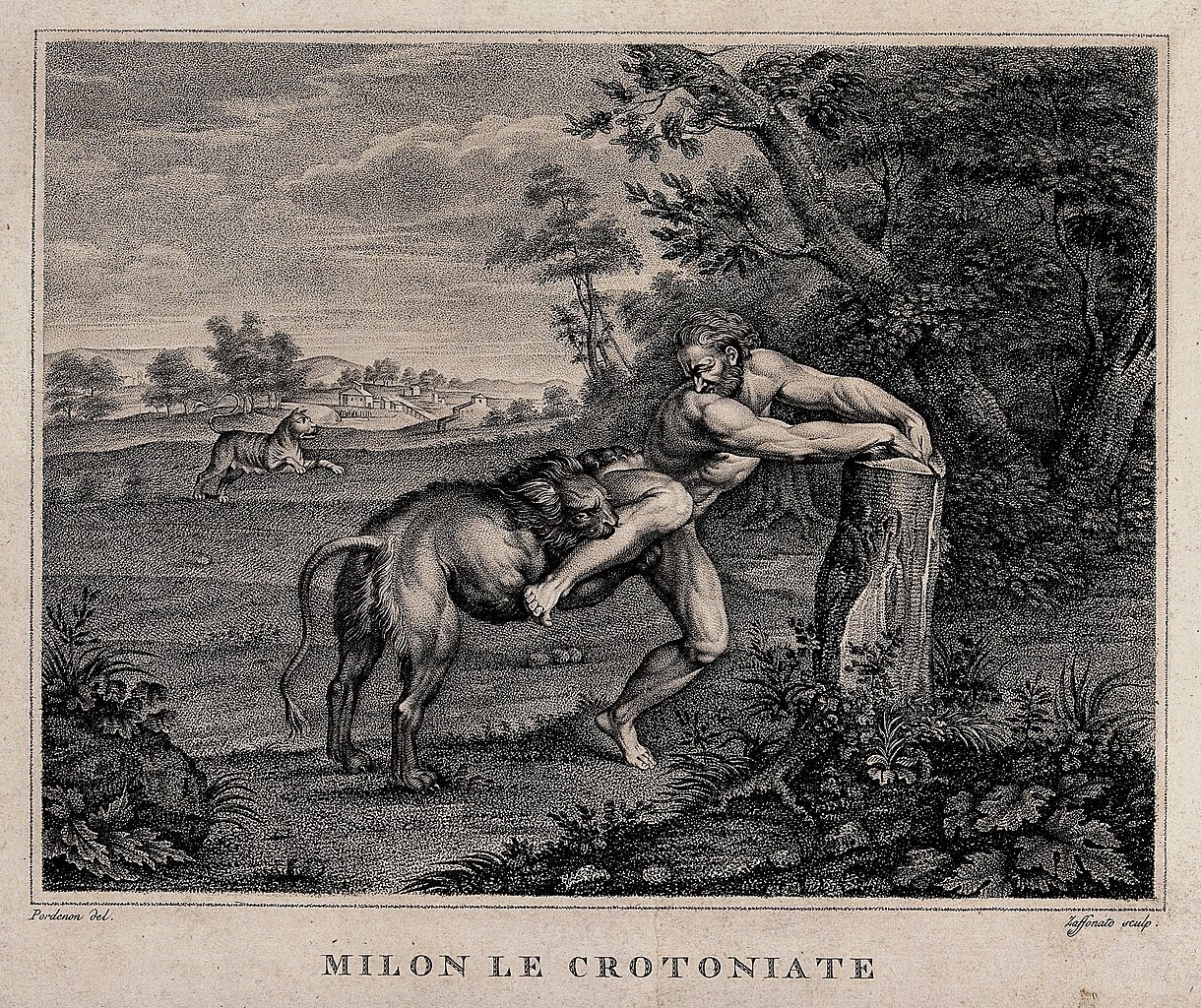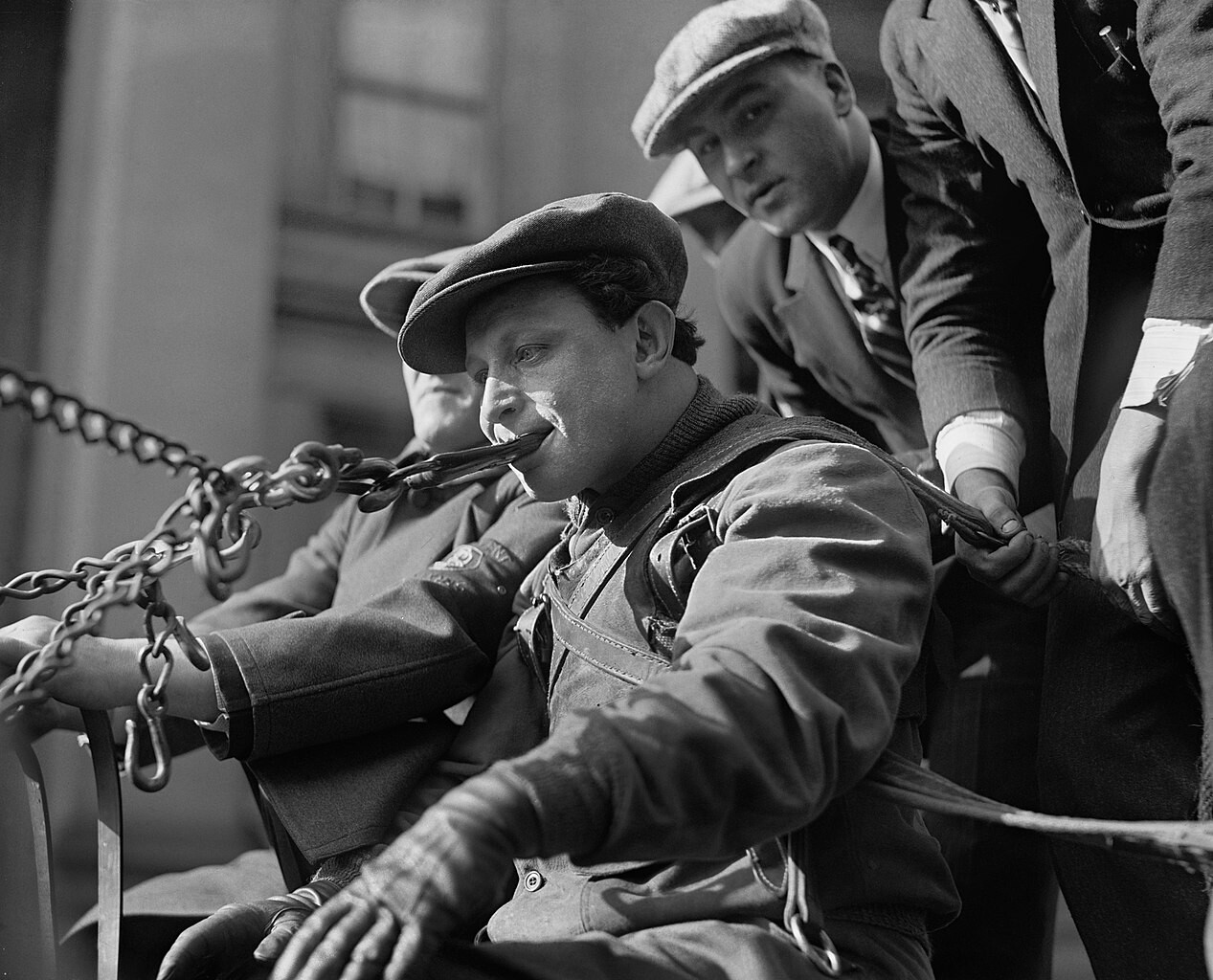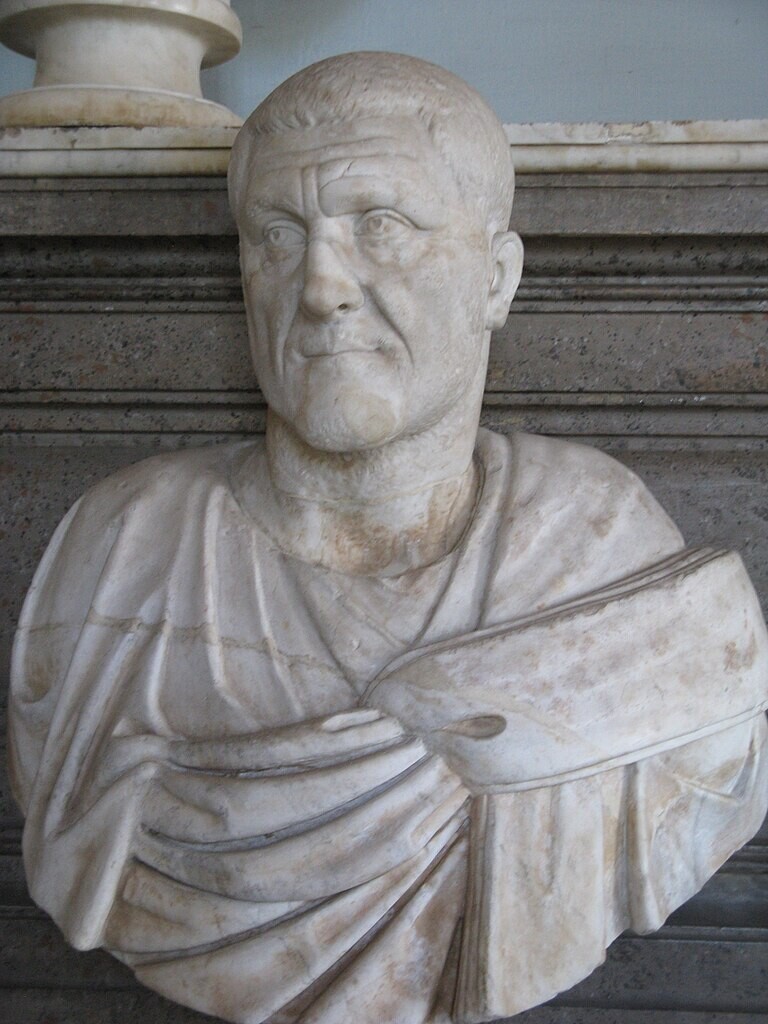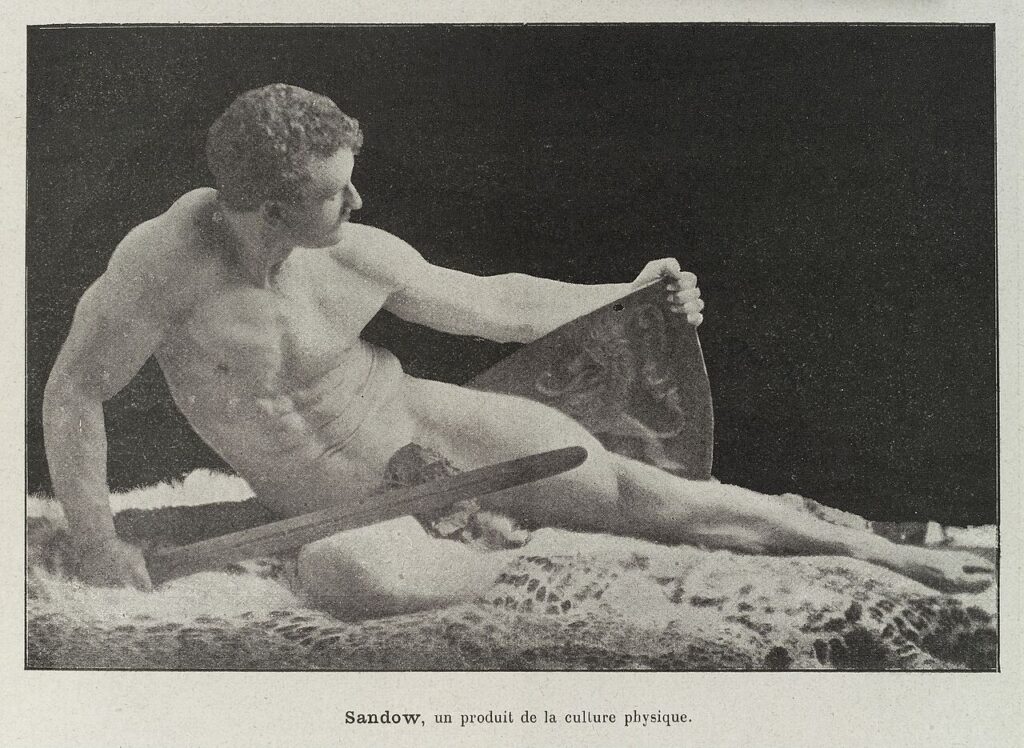In our modern, scientific age, we have systems of careful quantification for pretty much anything that might require it. In a lot of ways, this is good. Recipes are a lot easier to follow now that they don’t call for a “field-mouse’s weight in floure,” for example. Unfortunately, though, all that knowledge also does away with some of the magic and mystery of things like measuring strength. Nowadays, it’s a simple question to ask what someone benches, but in ancient times, the strongest men were crowned on their ability to just do scary stuff with their bodies. Let’s take a little trip back to those fun times.
Here are five ancient athletic achievements that are as impressive as they are strange…
Eugene Sandow’s Pony Hold
Before people were in the habit of pouring or casting dense metals into pre-approved lifting shapes, when you wanted to lift something heavy, you just looked around. You ran down your mental list of the heaviest stuff in your vicinity and then picked whatever you seemed the most likely to be able to pick up. Shock enough people by hoisting your item or animal of choice, and boom, you’re suddenly the village strongman.
Though he was not from this time, famous strongman Eugene Sandow much preferred the showmanship and wonder of old-timey-feats to marking off numbers and comparing them. In fact, he all but refused to participate in measured weightlifting competitions, knowing the results could only hurt him. He’d much rather spend his time pleasing a crowd with things like the move that would become his signature — lifting a pony above his head with one arm. Knowing exactly how much he was lifting was difficult, as even Google is giving me the outlandishly wide weight range of 400 to 1,400 pounds for a pony. Not that crowds cared. They were just impressed by the strength of the man, and, I assume, the calmness of the pony.
Milo of Croton Carries an Ox

Completely without their agreement, large animals of antiquity were often a central piece of strength demonstrations. You’ve got to feel for the confusion of a huge animal, already not great at thinking, trying to figure out why they were suddenly higher above the ground than ever before. In the 6th century B.C., an ox lived its entire life as the unwitting training regimen of a man named Milo of Croton.
According to legend, Milo carried the baby ox on his shoulders every day, the feat becoming more and more impressive as the ox became full-grown. My favorite insane detail is that, because the bull was getting heavier and heavier as it aged, people have credited Milo with accidentally following the principles of modern progressive weight training. However you want to describe his methods, given that he was ultimately hauling a mooing, 1,200-pound animal, you can’t say they weren’t successful.
Bybon’s Stone Sorta Dumbbell

Of course, even if the squat rack is still a long ways off, there’s simpler choices than animals. For example: rocks. Maybe the most straightforward object that has ever inspired the thought “can I lift that?” in the human brain. As an added bonus, unlike animals, rocks don’t generally mind being lifted. Want to test your mettle against other local beefcakes? Just pick a rock, lift it up, and if no one else can budge it, welcome to history.
That was the bare-bones, impromptu challenge a man named Bybon issued in Greece. He spotted a rock that he figured was just about the right size to shut everybody else up, knocked a handle into it and hucked it up above his head. Then, he returned the roughly 316-pound bit of geology to earth, grabbed his trusty chisel, and marked the occasion, writing, “Bybon, son of Phola, has lifted me over his head with one hand.” By writing the message from the perspective of the rock, we can also assume Bybon was at least a little bit funny, which makes me jealous.
Zishe Breitbart’s… Thing

The name “Breitbart” is not much associated with positive thoughts about Jewish people these days. Back in the 1920s, however, that surname brought to mind a beloved Semitic strongman by the name of Zishe Breitbart. Half heavy lifter, half Houdini, he was an entertainer and professional exerciser all in one. He was well-acquainted with the power of a poetic demonstration of strength, and was known for things like bending iron and pulling wagons full of people in front of onlookers.
He also strongly defended his Jewish faith at a time when anti-Semitism was rising. Something that, as history buffs know, would result in a pretty big worldwide kerfuffle in the next few decades. The guy was basically a real-life Bear Jew. One feat he used to demonstrate this power, though, was equal parts impressive and confusing. He would climb a ladder, while lifting a baby elephant, and holding in his teeth a rope connected to a locomotive wheel with three men hanging off of it. That’s gotta be one of the world’s weirdest prop request lists.
Maximinus Fights A Mule

Maximinus Thrax was not, in fact, some sort of planet-conquering alien warlord as his name would suggest, but a real life Roman emperor. His stature, though, did match the intimidation suggested by such an absolutely cartoonish name. He was said to be over eight feet tall, wore bracelets as rings and ate 40 pounds of meat at every meal. Pretty standard tall-tale fare, but it’s one particular feat attributed to him that inspires the reaction, “Wow. But also, why?” This is that Maximinus is rumored to have knocked out a mule with a single punch.
Times were different then, sure, but I’m not sure even they fully followed the logic of “I’ll prove I’m strong by fistfighting this donkey-horse!”
Eli Yudin is a stand-up comedian in Brooklyn. You can follow him on Twitter and Instagram at @eliyudin and listen to his podcast, What A Time to Be Alive, about the five weirdest news stories of the week, on Apple Podcasts, Spotify or wherever else you get your podcasts.

